Advertisement
Grab your lab coat. Let's get started
Welcome!
Welcome!
Create an account below to get 6 C&EN articles per month, receive newsletters and more - all free.
It seems this is your first time logging in online. Please enter the following information to continue.
As an ACS member you automatically get access to this site. All we need is few more details to create your reading experience.
Not you? Sign in with a different account.
Not you? Sign in with a different account.
ERROR 1
ERROR 1
ERROR 2
ERROR 2
ERROR 2
ERROR 2
ERROR 2
Password and Confirm password must match.
If you have an ACS member number, please enter it here so we can link this account to your membership. (optional)
ERROR 2
ACS values your privacy. By submitting your information, you are gaining access to C&EN and subscribing to our weekly newsletter. We use the information you provide to make your reading experience better, and we will never sell your data to third party members.
Research Integrity
Breaking: University of Kansas chemist Feng “Franklin” Tao found guilty over China interactions
The jury deliberated for 1.5 days over federal charges of fraud and making false statements against the chemical engineering professor
by Andrea Widener , Ariana Remmel
March 21, 2022
A criminal trial of Feng “Franklin” Tao, a chemical engineering professor at the University of Kansas, began on March 21 at a federal court in Kansas City, Kansas. Tao is accused of lying about his ties to China and faces eight charges—six for wire fraud involving emails and electronic submissions of forms and two for making false statements to the University of Kansas and US Department of Energy. He pleaded not guilty to all charges. C&EN will update this page as information from the trial becomes available.
-
April 8, 2022 | 12:59 PM EST
Reaction to Tao’s conviction
Though Tao and his supporters appeared surprised and disheartened by the verdict, his legal team remains certain that the conviction will not stand.
“We are disappointed, but confident we will prevail in the end,” Tao’s defense attorney Peter R. Zeidenberg told C&EN. He maintains his client’s innocence, saying that the government evidence did not support the charges that Tao intended to commit fraud or that any party was defrauded.
A spokesperson for the US Department of Justice declined to comment about the verdict beyond a news release. “Tao faces up to 20 years in federal prison and a fine up to $250,000 for wire fraud, and up to 10 years and a fine up to $250,000 on each of the program fraud counts,” according to the release.
A spokesperson for the University of Kansas in Lawrence declined to comment on the verdict, stating in an email that “separate from the criminal trial, this issue remains a personnel matter.”
Haipei Shue, the current president of the social justice non-profit United Chinese Americans, was among Tao’s supporters in the courtroom during the final days of the trial. Shue said that he was “very very disappointed” in the verdict, and sees Tao’s case as part of a series of litigations that have disproportionately targeted Chinese Americans.
With the sentencing date not yet set, Shue believes Tao “still has a fighting chance to get justice.”
Following the verdict, Tao was released by the court and has since returned to his home in Lawrence, Kansas, Tao’s wife, Hong Peng, and his lawyer, say. —Ariana Remmel
-
April 7, 2022 | 2:45 PM EST
Jury finds Tao guilty on 4 counts
On Thursday, a jury found University of Kansas chemist Feng “Franklin” Tao guilty of 3 counts of wire fraud and 1 count of making false statements. He had been charged with 8 total counts: 6 of wire fraud and two of making false statements. Deliberations began the morning of April 6 at the Robert J Dole United States Courthouse in Kansas City, Kansas.
As the verdict was read Tao was already slumped in his seat, and as he heard the guilty finding he was visibly disappointed. His wife, Hong Peng, appeared anxious before the verdict. She came over and patted Tao on the shoulder after the jury left. Tao’s lawyers quickly led him away.
The verdict was read to a relatively empty courtroom, compared to the crowd that had been there for closing arguments. —Ariana Remmel
-
April 6, 2022 | 6:15 PM EST
Jury is still out after the first day of deliberations
The jury began deliberations in the trial of University of Kansas professor Feng “Franklin” Tao the morning of April 6 at the Robert J. Dole federal courthouse in Kansas City, Kansas. The jurors have yet to reach a verdict, and will resume deliberations April 7. —Ariana Remmel
-
April 6, 2022 | 12:30 PM EST
The prosecution and defense present their closing arguments before the jury begins deliberation
Before each legal team presented closing arguments on Wednesday, Judge Julie A. Robinson began explaining the rules of deliberation to the jury and reiterated the charges against Feng “Franklin” Tao: six counts of wire fraud and two counts of making false statements.
US Attorney Donald Christopher Oakley presented the closing arguments for the prosecution, and he started by addressing the federal wire fraud charges in which Tao allegedly sent fraudulent communications across state and national lines. He drew attention to the extensive email, phone communication, and digital records documenting Tao’s discussions about his international award from the Chinese government and his alleged appointment with Fuzhou University (FZU).
These documents were presented as evidence that Tao knowingly lied about his relationship with FZU, that he concealed information about his job negotiations, and that he deceived his employers at the University of Kansas and government funders by failing to disclose pending financial support from funders in China, Oakley said. He pointed out that even KU’s interdepartmental emails qualified as wire fraud because the university’s email servers are in Illinois.
The result, Oakley said, is that Tao took part in a scheme to defraud KU. The university continued to pay his salary and provide laboratory space while Tao was actually working at FZU, Oakley said. Federal prosecutors did not present evidence that Tao was paid by FZU or China in closing arguments.
Oakley spoke directly to the defense’s assertion that the charges against Tao boil down to his not “checking boxes” on personnel forms. As to the counts of false statements, Oakley directed the jury to consider two documents – one institutional responsibility report from KU and one document submitted to the U.S. Department of Energy – in which Tao failed to disclose his alleged ties to FZU and the anticipated research dollars from this appointment.
“The nature of fundamental research is based on trust,” he said. A scientist’s failure to disclose potential conflicts of interest could undermine the conclusions of federally-funded research and betray the trust of tax-payers who foot the bill, he said. Tao was aware of his responsibility to report any conflicts of interest, Oakley said. He presented emails between Tao and KU research integrity staff showing he disclosed previous conflicts.
Oakley said that Tao’s omission of his alleged employment by FZU showed a willful attempt to defraud state and government agencies of money and resources to promote his own career. “This was not a mistake, and you know that because of the lies,” Oakley told the jury. “The defendant knew he was committing a crime.”
Tao’s defense attorney, Peter Zeidenberg, began his closing arguments by asking the jury to consider who was harmed by Tao’s alleged fraud scheme. Openly exasperated, Zeidenberg returned to earlier testimony from DOE and National Science Foundation program managers who stated that Tao executed his research in accordance with the grants provided. The defense attorney also reiterated that most of the money from these federal grants was distributed directly to KU.
Zeidenberg then returned to earlier testimony from pastor Joseph Ting and Tao’s wife, Hong Peng, that portrayed Tao as a “working machine.” He questioned claims made by the prosecution that Tao was shirking his duties to KU, pointing to his prolific publication record and academic awards bestowed by KU in recognition of his research accomplishments.
The defense homed in on the dense policy documents detailing disclosure requirements for KU and government funding agencies. Zeidenberg compared signing an acknowledgement of these protocols by employees to signing a car rental agreement – you check whatever boxes you have to to get on your way, he told the jury. He said that the prosecution had overblown the severity of Tao’s supposed offenses.
Zeidenberg claimed that the Federal Bureau of Investigation had bungled its inquiry into Tao’s actions. In particular, FBI special agent Steven Lampe was taken in by Huimin Liu, a former scientist in Tao’s lab who threatened to report Tao for being a spy as retaliation for a work dispute.
The China Initiative, a Trump-era US Department of Justice program designed to root out Chinese theft of trade secrets, itself did not come up as a government motive, likely because the judge ruled that neither party could mention it. Before the jury entered the room, Judge Robinson gave both legal teams a stern reminder of her earlier decision to exclude testimony that “risks misleading the jury into thinking this case is actually an economic espionage or theft of trade secrets case,” as summarized in reporting by Kansas City National Public Radio station KCUR.
Nevertheless, Zeidenberg focused much of his closing argument on criticizing the FBI’s methods as they pursued Tao. Zeidenberg described special agent Lampe as being “fuzzy on the details” about how federal science funding is administered, and reiterated that the FBI did not contact anyone from the agencies in question until after arresting Tao. “Instead of putting a drone over his house, pick up the phone and call the NSF,” Zeidberg said.
In his response, prosecutor Oakley aggressively defended the agency, calling the defense’s argument a “mischaracterization.” He said that prosecution does not have to prove Tao received financial compensation from FZU to prove his intent to defraud. Oakley also noted that whatever Tao’s research achievements, his responsibilities to KU also included teaching, service, and faculty duties that he neglected in the time Tao spent at FZU. “The fact of the matter is that this case has been about the defendant’s conduct,” he told the jury.
As court adjourned just after 5:30 PM CDT, a crowd of at least 30 people began to exit the courtroom. Peng told C&EN that she recognized most of those in attendance as family, friends, and members of her church. The family has said they are happy to have so much support from their community, both locally and the Asian American community nationally. For example, a GoFundMe campaign Peng started in November 2020 to help pay for legal fees has reached $633,845 of its $1 million goal from 4,300 individual donations. It includes letters of support signed by Anming Hu and Gang Chen, two other scientists who were indicted on similar charges under the China Initiative.
Jury deliberations began the morning of April 6. —Ariana Remmel
-
April 5, 2022 | 5:15 PM EST
The defense calls two more witnesses and rests its case
Tao’s defense attorney, Peter R. Zeidenberg, began Tuesday’s proceedings by calling two more witnesses to speak to the University of Kansas chemist’s character.
The first witness was pastor Joseph Ting, who first met Tao and his wife, Hong Peng, when they moved to New Jersey in 2002 and joined his congregation. He testified that Tao, who at the time was a graduate student at Princeton University, was an active member of his church and had a reputation for being hardworking, honest, and kind.
Zeidenberg called Peng to the stand next. Her testimony continued to paint a picture of her husband as an intense and dedicated scientist who had been treated unfairly despite his exceptional research. “The only thing he wants to do is research, to make a contribution to the world and the betterment of society. He doesn’t care about money,” she said. Peng said that her family rarely took vacations or bought expensive items.
Zeidenberg asked Peng if she thought Tao’s negotiations with Fuzhou University were serious. Peng testified that she had no intention of moving back to China because she had dreams of becoming a physician in the US. In addition, her children can not read or write Chinese. She told the court that Tao had planned to take an unsigned draft contract with Fuzhou University to the provost at the University of Kansas as a way to advance his promotion package, which he had been previously denied.
In cross examination, federal prosecutor Adam Barry questioned Peng’s testimony about the events surrounding Tao’s arrest in August 2019. He pointed out discrepancies in Peng’s statements to the FBI during the execution of a search warrant of their house and her account of conversations she had with other witnesses in the case. Peng responded that her exact memory of her statements at the time of that initial interview were clouded by her fear in the moment.
In particular, the defense and prosecutor questioned Peng multiple times about her answer to early questions about whether Tao was employed by Fuzhou University. At the time of the FBI’s search, Peng testified that she told the FBI agents that Tao had a side job with Fuzhou. Peng said that she meant Tao had an informal working relationship with colleagues at the university. Barry pushed back at that answer, suggesting that Peng’s first statements were an admission that Tao was an official employee of Fuzhou University.
The defense rested its case shortly after without calling any further witnesses, including Tao. Closing statements were set to begin Tuesday afternoon. —Ariana Remmel
-
April 5, 2022 | 10:00 AM EST
The prosecution rests its case, the defense begins
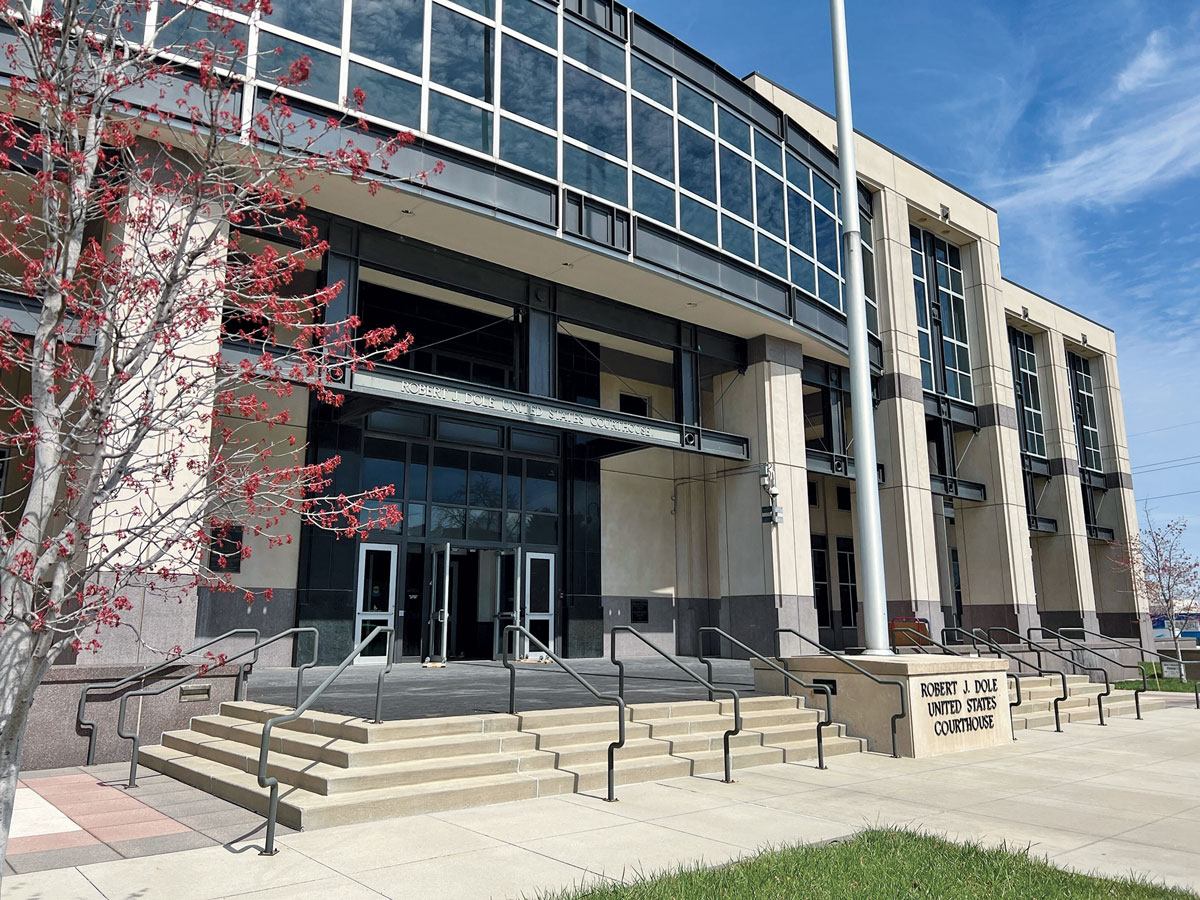 Ariana RemmelThe trial of University of Kansas chemist Feng “Franklin” Tao is entering its third week at the Robert J. Dole United States Courthouse in Kansas City, Kansas.
Ariana RemmelThe trial of University of Kansas chemist Feng “Franklin” Tao is entering its third week at the Robert J. Dole United States Courthouse in Kansas City, Kansas.Monday morning, the US government rested its case in the trial of University of Kansas chemist Feng “Franklin” Tao. He is charged with multiple counts of wire fraud and making false statements regarding his affiliation with a Fuzhou University in Fujian, China, while receiving research funding from the US National Science Foundation and Department of Energy. In the last two weeks, federal prosecutors presented evidence that the government claims to show Tao living a “double life”, according to reporting by Kansas City National Public Radio station KCUR. C&EN has been unable to cover the first two weeks of the case but is in the courtroom in Kansas City starting April 4.
Today, the defense began questioning FBI special agent Steven Lampe, who oversaw the investigation that led to Tao’s arrest and subsequent indictments.
Defense lawyer Peter R. Zeidenberg led his questioning to support his claim about “fundamental misunderstanding by the government about how these grants worked.”
Zeidenberg pointed to what he called opaque disclosure requirements associated with NSF grant applications. He noted that at the time of Tao’s applications, Tao had no formal agreement with Fuzhou University. The defense repeatedly pointed to testimony from case managers at the DOE and NSF who expressed little interest in Tao’s research affiliations beyond the University of Kansas that did not provide active financial support. They told the court conflict of interest statements are not part of their evaluation process.
Zeidenberg also focused on earlier testimony from University of Kansas administrators, postdocs, and graduate students who worked with Tao who described him as an active, productive member of the university community. The defense also drew attention to multiple research articles that Tao published that include his dual affiliation with Fuzhou University and the University of Kansas as proof that the chemist was not attempting to hide his work with the Chinese institution.
FBI agent Lampe said this dual acknowledgement appears to be in compliance with an unsigned draft contract that was previously submitted as evidence.
Prosecutor Donald Christopher Oakley also pushed back on the defense’s claims that Tao was open with the University of Kansas about his business in China. Oakley argued that when Tao was in China to negotiate with Fuzhou University about setting up a lab and recruiting students, he lied to the University of Kansas about his whereabouts. Specifically, the prosecution showed an email in which Tao said he could not attend a University of Kansas faculty event because he was at a conference in Germany—but he was in fact at Fuzhou.
Oakley questioned the defense’s narrative that Tao was sufficiently performing his duties at the University of Kansas, because he was not on campus for the full 9 months of the 2019 academic year. Tao made official arrangements to have his teaching responsibilities covered so that he could spend a semester in China.
FBI agent Lampe said these behaviors appear to be in agreement with an unsigned draft contract that was previously submitted as evidence.
Much of the day’s proceedings hinged on discussions of a contract between Tao and Fuzhou University. The prosecution previously submitted as evidence a draft contract provided by a former research associate of Tao, Humin Liu. After a disagreement with Tao about authorship of a paper, Liu attempted to extort $300,000 from Tao, the defense said. FBI agent Lampe confirmed that Liu, using the names of other people, made multiple accusations against Tao and lied about how she obtained a copy of the draft contract between Tao and Fuzhou University. Despite this, Lampe said he found Liu a credible witness.
Zeidenberg describes the case as revolving around Tao’s failure to disclose a conflict of interest in employment paperwork at the University of Kansas -– an action the defense attorney says does not warrant a federal trial. The prosecution, meanwhile, claims Tao knowingly lied about his activities with Chinese universities with intent to commit fraud against the US government. —Ariana Remmel
-
March 23, 2022 | 5:45 PM EST
Jury selection and opening statements
Tao’s trial started on Monday, March 21, with selection of 16 jurors. “U.S. District Judge Julie Robinson warned the prosecution and defense to stay focused on the basics of the case and not to stray into discussions of espionage and the China Initiative,” according to Kansas City National Public Radio station KCUR.
On Tuesday, March 22, jurors heard opening statements from the prosecution and defense.
“Prosecutors characterized Tao as deceptive and secretive about his work with Fuzhou University in China,” KCUR summarized.
“It’s about the lies, it’s about the fraud, it’s about the concealment and deceit” said Adam Barry, a US Department of Justice attorney, according to KCUR.
According to the Associated Press, Barry said Tao “concocted an elaborate lie” and “betrayed” the University of Kansas.
In contrast, Tao’s attorney, Peter Zeidenberg, “described Tao as one of the University of Kansas’ most prolific researchers and said he completed all the research he was contracted to conduct,” the AP reported.
Zeidenberg said that Tao never accepted a paid position at Fuzhou, nor did rules at the time require Tao to disclose an unpaid position at a foreign university, according to the AP and KCUR.
Zeidenberg characterized the allegations against Tao as so minor they would normally have been handled by a human resources department. “Because it involved China, the government has turned it into a federal case,” Zeidenberg said, the AP reported. —Jyllian Kemsley
-
March 21, 2022 | 2:00 PM EST
Background
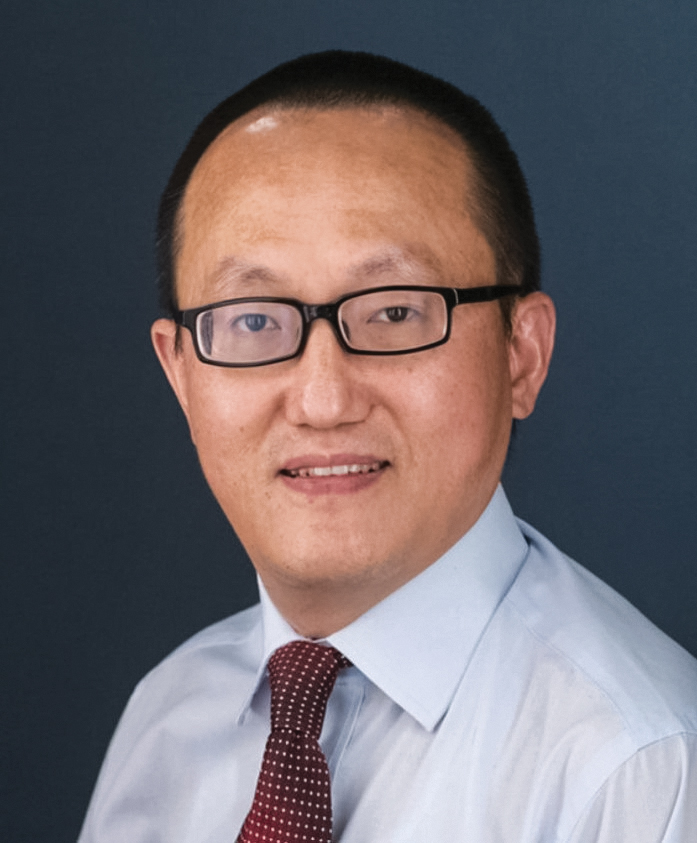 Courtesy of Hong PengFeng "Franklin" Tao
Courtesy of Hong PengFeng "Franklin" TaoIt was a normal morning in August 2019 when Hong Peng heard a knock at the door of her home in Lawrence, Kansas. Her then 14-year-old twins, a boy and girl, had already left for high school, so she rushed to answer. That's when a dozen US Federal Bureau of Investigation agents pushed into her house. They searched every square inch and took away all the electronics, she says.
The next day, the agents returned and arrested Peng's husband, University of Kansas chemical engineering professor Feng "Franklin" Tao. Peng says it seemed like something from a movie. "It was heartbreaking when you watch it and you are not the one taken away. And there was nothing you could do."
Soon after the FBI left with Tao, a neighbor came over, gave Peng a hug, and reminded her that she knows her husband better than anyone else. "These were simple, supportive words, but they really have inspired me," Peng says. Her family has worked for the past several years to prepare Tao's case for trial. "I know Franklin, and he's a good husband and a better father. And he's truly a good person."
Tao's trial on eight charges that he lied about his ties to China starts today in Kansas City, Kansas. He was one of the first people—and the first academic researcher—formally charged under the China Initiative of the US Department of Justice (DOJ). The initiative was supposed to stop economic espionage but ended up targeting many academics for allegedly not fully disclosing their affiliations with China. The initiative has caused many Asian scientists in the US, especially Chinese scientists, to rethink their science and their collaborations with colleagues in China.
Last month, Assistant Attorney General Matthew Olsen said that the DOJ would revamp the China Initiative, acknowledging that it had "fueled a narrative of intolerance and bias" against Asian scientists in the US. But Olsen said that the DOJ did not plan to revisit any of the cases against people who had been charged, including Tao.
That concerned many in the Asian community in the US, as well as Tao's lawyer, Peter R. Zeidenberg of the firm ArentFox Schiff, who has represented several people charged under the initiative. In a webinar last month, Zeidenberg said that he found the DOJ's decision to not reexamine current cases "very concerning to me to say the least."
Tao's is a "pure academic integrity case where there's an alleged nondisclosure," Zeidenberg said. There were "no interviews by the FBI, no tax money in suitcases, certainly nothing involving classified or secretive or proprietary information."
These cases cause a great deal of financial and career damage to people who are charged, even if they are found not guilty, Zeidenberg said. "My question for the department is why—if these cases are not going to be brought in the future because they're not justified under the circumstances—why is the department continuing cases that have already been brought?" he asked.
Peng says that she had never even heard of the China Initiative before Tao was arrested, but she was convinced her husband was not a spy. When she heard about the charges, "I was mad. I was sad. We came to the USA and we worked so hard," she says.
Arrests of more professors under the initiative confirmed to Peng that something is not right with the prosecutions. "I just feel sorry this happened to the other families because we have been through this," she says. I can tell you this is damaging to him, to our family, to our kids."
Tao grew up in a poor, mountainous village in rural China, Peng says, and "he really has overcome incredible obstacles" to build a scientific career in the US. The couple moved to the US in 2002 so Tao could attend graduate school at Princeton University. He did a postdoc at Lawrence Berkeley National Laboratory before taking a faculty position at the University of Notre Dame. He moved to the University of Kansas Department of Chemical and Petroleum Engineering in 2014.
Tao regularly worked 80 h weeks at the university, Peng says, and he had just won a major midcareer University of Kansas award a few months before he was charged. He donated part of the prize money to his department.
Soon after his arrest, Tao was put on unpaid leave, so his family has been struggling to pay its normal bills and legal fees since. Peng was a medical doctor in China but now works as an ultrasound technologist. She has three jobs to try to keep up with expenses.
Tao's family is grateful for the support it has received from its church and from the Asian community in the US, Peng says. A fundraising web page has raised more than $580,000 toward a goal of $1 million. "We feel like we are not alone," she says.
Peng's hope is that the trial will be fair. "We want there to be justice." —Andrea Widener
CORRECTION
This article was updated on April 5, 2022, to note that the presenting prosecutor in the April 4 proceedings was Donald Christopher Oakley, not Adam Barry.

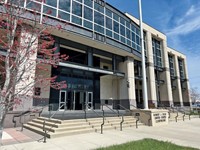
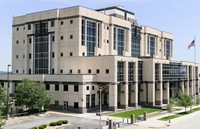
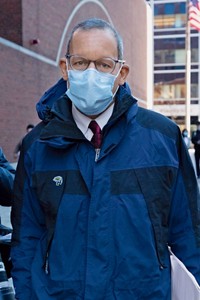

Join the conversation
Contact the reporter
Submit a Letter to the Editor for publication
Engage with us on Twitter